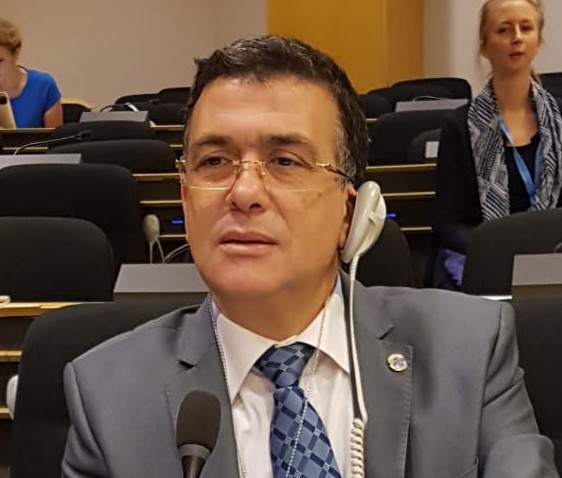The European national states were pioneers in establishing new concepts of diplomatic work in its general sense, then these concepts were consecrated since the establishment of the European Union in 1993, by giving an opportunity to alternative means of diplomatic communication through the concept of public diplomacy, soft power and cultural relations, whether between European countries themselves or With the rest of the world.
Many countries have clearly benefited from this experience and this modernist perspective, such as China, India and Turkey recently, through cultural activation outside borders by the institutions of cross-border cultural centers, through the activation of the role of civil society organizations, as well as through university academic programs such as Erasmus, Mawlana and others.
This is a basic fact that we should recognize as an entry point to define the patterns of EU diplomatic action in the twenty-first century.
But there is an important question that arises in this topic:
Are these concepts adopted by the European Union countries equally applied in cultural relations with all other peoples and cultures?
I believe that the European Union’s cultural diplomatic policy that we talked about enjoys a great support from the Union and its states, but it always remains subject to the criteria of unilateral interests, especially economic and sovereign interests. Means that these concepts remain acceptable to European decision-makers as long as they do not conflict with the material interests of the Union's states.
To this end, it undergoes a filtering process, and this filtering often leads to double standards in dealing with certain political and economic files.
For instance:
How did the European Union deal with the plunder of valuable possessions of the Baghdad National Museum during the Iraq war? Certainly, the Union’s position was timid and unjustified compared to the destruction of the Buddha statue in Bamiyan, Afghanistan, by the terrorist group Taliban in 2001.
Another example is the position of the European Union on artifacts and documents and manuscripts that were smuggled illegally during the colonial period from Egypt, Morocco and Tunisia... These monuments, of which a large number were found in the Louvre Museum or the Museum of the National Library in Paris or British Natioanl Laibrary.... etc.
In the El Escorial Library in Madrid there is also a large collection of the Zidane library manuscripts that were stolen by pirates from the Moroccan King Zidane Saadi during an internal trip in the Atlantic Ocean into the Moroccan maritime borders.
Since the beginning of the 20th century, many voices from civil society, academic institutions and cultural bodies from the countries of the South have demanded the return of these treasures to their countries of origin without result.
Also, there are two cases that have appeared in the media in recent days:
The first one is:
The issue of Ceuta and Melilla, which are located on African soil in the north of the Kingdom of Morocco, in a cultural, linguistic, demographic and geographical environment far from the European sphere, but Spain refuses to recognize the cultural, historical and demographic identity of these two cities, and insists on considering them an extension of the Spanish-European sphere.
The strangest thing is that the position of the European Union during the past two days was in support of the Spanish colonial culture, because it considered these two cities a part of the European Union!!!!!
There is no doubt that the matter is related to a strong beating of the concept of cultural diplomacy, with the inconsistent adoption of the principle of respecting the cultural identities of other peoples.
The second issue is Moroccan Sahara:
Spain is playing to this day a role inconsistent with the concept of cultural diplomacy, cultural dialogue and the strengthening of the cultural heritage of peoples.
The cultural and civilizational heritage of the Moroccan Sahara region is an important part and a natural extension consistent with the cultural heritage of all the southern region of the Kingdom of Morocco: the same dialect, the same artistic heritage, the same traditions, the same beliefs, the same dress, the same geographical area, and the same historical ties with the mother country which is Morocco. There are absolutely no differences.
Inspite of that, Spain is trying to fragment the cultural identity of Morocco by supporting separatist terrorist movements under the watchful eye of the European Union and with its blessing.
In my opinion, there is no clear standard for the Spanish kingdom to try to break up the cultural identity of Morocco, except for one criterion, which is the culture of nostalgia for the colonial stage, because Spain was occupying this region before Morocco liberated it and returned it to its natural domain in 1975.
To conclude:
The states of European Union present a respectfull model for the concept of diplomatic work and the principles of protecting cultural rights, but when these principles conflict with there economic and political interests, they take off the hat of cultural diplomacy and respect for other cultures and wear the hat of nostalgia for the colonial period.
*President of International Academic Center For Strategic Studies(IACSS)
Morocco







